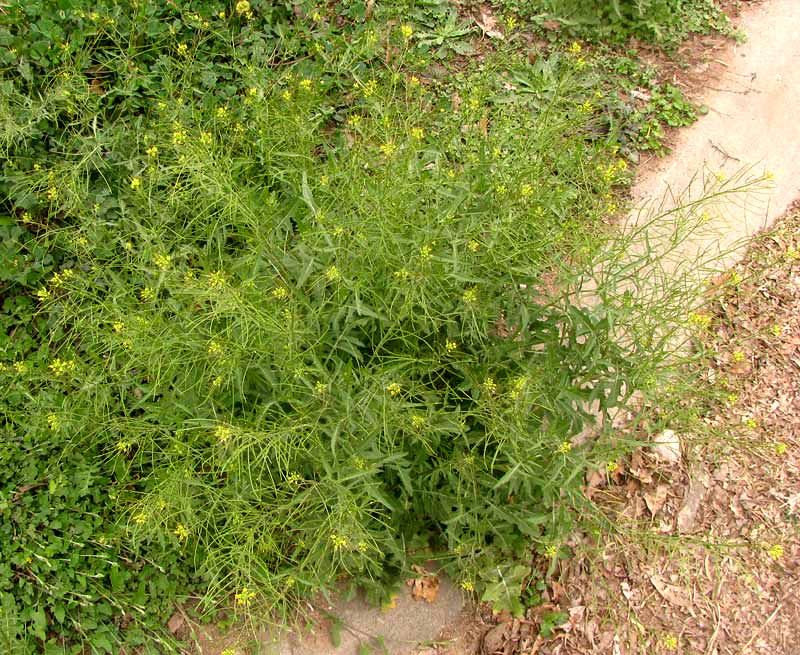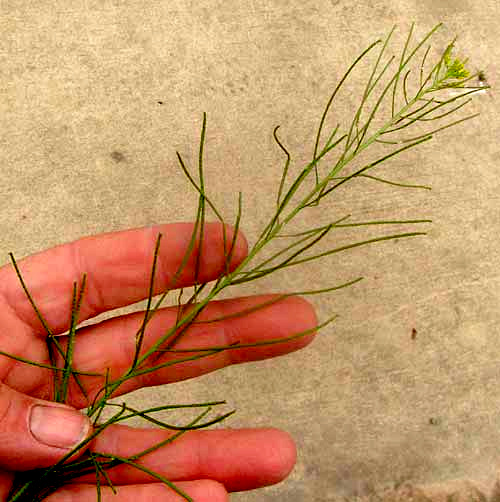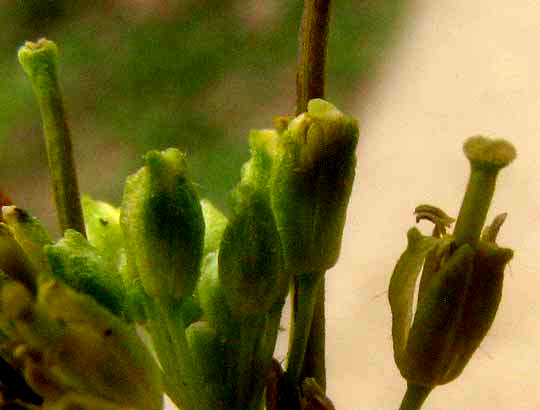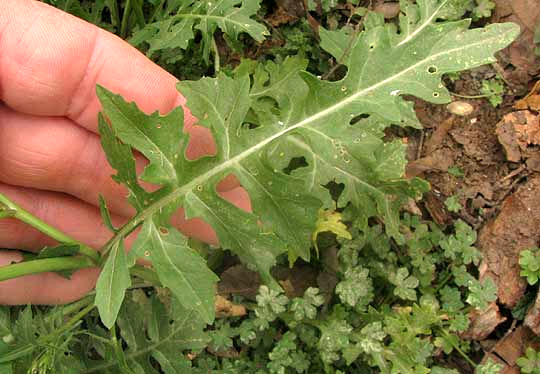Excerpts from Jim Conrad's
Naturalist Newsletter

from the March 9, 2014 Newsletter issued from the Frio Canyon Nature Education Center in the valley of the Dry Frio River in northern Uvalde County, southwestern Texas, on the southern border of the Edwards Plateau; elevation ~1750m (~5750 ft); N29.62°, W99.86°; USA
LONDON ROCKET
In Uvalde maybe the most common rank weed of the kind you see up against the bases of warehouses, in abandoned lots and along neglected sidewalks, is the knee-high one shown above gracing the very edge of a side street.
A closer look at the flowering and fruiting branches, with tiny, yellow blossoms at the branch tip, and long, very slender fruiting capsules, with the capsules spreading away from the stem as they mature (important field mark) is shown below:

A closer look at individual flowers showing slender ovaries -- the future fruits -- erupting from the modest blossoms is seen below:

The plant's large basal leaves are deeply lobed, as shown below:

This is the London Rocket, also known as Rocket Mustard, SISYMBRIUM IRIO, a member of the Mustard Family, the Brassicaceae. It's an invasive from Eurasia and Africa now found in disturbed sites in many countries. In the US it occurs mostly in southwestern states, though it turns up spottily throughout the country. I read that the name London Rocket comes from its abundance after the Great Fire of London in 1666. The English name "rocket" derives from the Middle French roquette, and the Italian rochetta, the latter diminutive of ruca, from the Latin eruca, applied to a kind of mustard plant. The name of the salad plant Arugula, also a member of the Mustard Family, goes back to the same roots.
London Rocket's flowers, young leaves, and seeds are all edible, but they are so spicy-hot and pungent that you can't eat much.
entry dated December 12, 2022, issued from near Tequisquiapan; elevation about 1,900m, (6200 ft), ~N20.57°, ~W99.89°; Querétaro state, MÉXICO
LONDON ROCKET IN MEXICO

In the corner of a courtyard alcove, shaded by a canopy of passion-flower vines, the London Rocket at the right was flowering, stunted by the shadiness and drought. On the ground around it lay fallen passion-flowers. I read that in the Mexican highlands, when there's enough moisture, this species flowers all year.
The Malezas de México, Mexican Weeds, website says in Mexico London Rocket can be a serious weed in nitrogen-rich soils, and soils that are alkaline or salty. It's especially bad in frequently fertilized irrigated fields.
On the other hand, it makes good rabbit food, the site says, and the plant's leaves can be eaten in salads with oil, salt and vinegar.